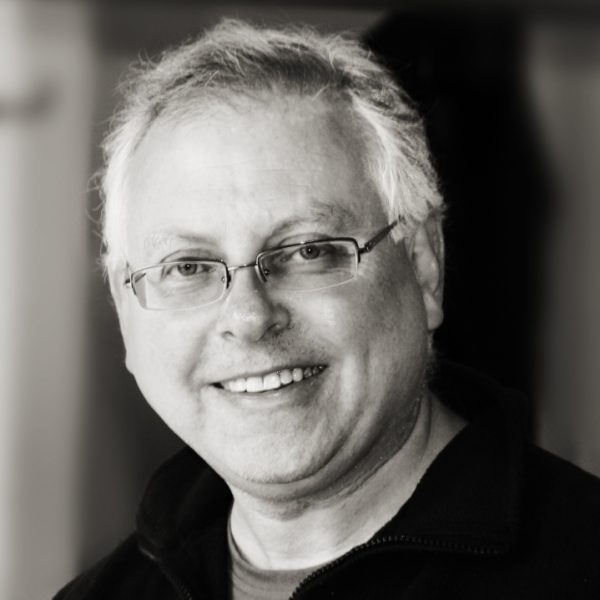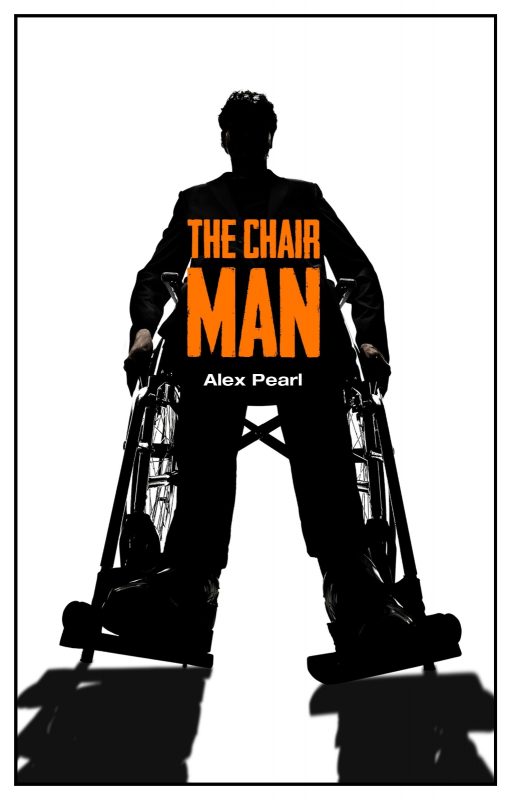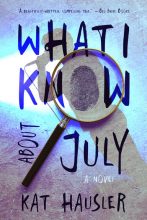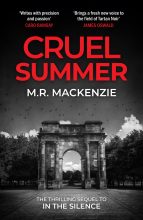Prologue & Chapter 1
Michael had been sitting there for 40 minutes with the long plastic tubes, one of which he’d managed to insert into his back passage. Another was attached to a rubber pump mechanism, which he had already squeezed with his right hand to pump warm water around his bowel. The indignity of his daily routine was horrendous. Just as he began to think he’d wheel himself into the shower and try again later, his bowels evacuated and his ears were greeted by the sound of a mini Niagara Falls. Thank Christ, he thought to himself and pulled the bell cord.
Annie, the young Filipino girl had only been his carer for two weeks. She may have been young, but she’d been fantastic. You didn’t have to explain everything to her 50 million times; you just told her once, and she’d get on with it. Better still, she’d smile and engage in normal conversation; not like those sour faced bitches from the agency who moped around as if the world owed them a living and gave you the impression that they were doing you a favour by just showing up – even when they were half an hour late.
Within minutes Annie had wheeled him into the shower and was washing his hair. In truth, he could probably have managed it himself, even though his stomach muscles were clearly on their way out, and it was an almighty effort to sit up straight, but it was nice to get this kind of attention. Besides, it had been a long time since a woman had smiled at him.
‘So what you do today, Mr Hollinghurst?’ Annie asked while dousing his head with the shower as if watering a delicate flower that was in desperate need of a good drink.
‘Oh, I don’t know. Thought I might have a spin on the heath. Buy The Telegraph and catch up with the god-awful news. How about you?’
Annie smiled and shrugged. ‘The usual. I go home to look after nan.’
She was a bright kid. She’d been to university back home and had a degree in economics, and now was only in the UK to look after her elderly grandma living in Golders Green. How many English teenagers would have the decency to ditch their lives and up sticks to look after an aged relative? Probably no more than you could count on the fingers of one hand, Michael surmised.
Annie wheeled him out of the cavernous wet-room, and through into the bedroom. ‘Nice picture,’ she said as they swept past the fireplace displaying the large framed shot of all four of them on the day of his daughter, Natasha’s graduation ceremony at Durham University. They were all beaming; even that cow of a wife of his. Those days were long gone. Life had moved on. Though sometimes Michael felt like his life had just stopped moving and had come to a crashing halt on 7 July, 2005.
CHAPTER 1
He could remember that morning very clearly now. It had been a day like any other. He’d just checked his email on his mobile and had stepped onto a train at Edgware Road. The train had barely left the station, and like everyone else, he was just going through the motions of the daily grind, hanging onto the handrail while someone else’s elbow blocked his vision. This was the joy of commuting on London’s electric sewer.
He could vaguely recall that deafening blast, but that’s all. No white flashes; no screams; no pain; no dying passengers; no heroic paramedics; just nothingness. The media had been full of it, of course. Blurred CCTV images of those four demented individuals had appeared on newsprint the world over, and the whole ghastly business had acquired its own moniker; its own brand identity; its own soundbite: 7/7. London’s very own 9/11.
His clearest recollection was the face of that large black nurse bearing down on him. ‘Hello there Mr Hollinghurst. You’re at the Royal London Hospital.’ He remembered hearing her chirpy voice very clearly, but it took a while before his eyes could focus properly.
He’d been there for some hours to undergo minor surgery to remove shrapnel from his right leg. And then he’d been transferred to Stanmore, the national hospital for spinal injuries.
The horror of it all came flooding back to him when he found himself in another altogether more claustrophobic tube. The MRI machine was a marvel of the technological world. It was also bloody uncomfortable. Lying there surrounded by whirring cold metal, he caught fleeting fragments of the moments before the blast. The attractive young woman sitting opposite applying eye mascara and pulling unflattering faces while doing so; the young guy with designer stubble reading the well-thumbed copy of Our Man in Havana by Graham Greene; the toddler with the pink headband sitting on her mother’s lap. Their ghosts had come back to haunt him and his eyes had welled up with tears. What had given him the right to cheat death?
Some hours later he’d been wheeled back into his ward. There were three others sharing this utilitarian space with its grey flecked flooring, medical paraphernalia and lightweight dividing curtains that could turn your shared world into a private one in a mere swish.
The consultant had arrived with his entourage of student doctors and a dutiful nurse with an Irish accent had drawn the blue curtain, surrounding them in a calm oasis of nylon. Mr Hudson was your typical consultant, privately educated at some minor public school in the home counties, followed by a stint at King’s College Cambridge and that long slog up the greasy pole that was the NHS. And here he was with his thinning grey hair and ruddy cheeks going through his file of notes. ‘Well, I hope we’re making you feel as comfortable as possible, Mr Hollinghurst. You’ve been through the most terrible ordeal. But the important thing now is to get you through this as best we can.’ The rest of the one sided conversation had washed over Michael. He could hear the pleasant and calming sound of Mr Hudson’s dulcet tones and could understand the meaning of individual words but for some unfathomable reason hadn’t been able to comprehend the sentences; to join up the dots. The word compression seemed to be one of the words that had cropped up quite a lot. Trauma was another. And then, rather ominously, surgery.
Once he was fully conscious and the full horror of a C3-C5 spinal compression injury began to sink in, the dark clouds had begun to gather and suicidal thoughts became the order of the day. He’d lost all sensation from the neck downwards, He’d lost bladder and bowel function; his legs were totally useless appendages that would lead a life of their own by going into uncontrollable spasms that would reverberate like a pneumatic drill on overdrive, through his entire body. It was just as well he had lost all sensation because that would have driven him nuts. Life was just about surviving. It wasn’t much of an existence.
Things started to go downhill with Louise when they moved him to the rehab unit at Stanmore Hospital. In all honesty, their relationship hadn’t been that great before all this happened. If he was going to be brutally honest, he’d tell you that they started to fall out of love a couple of years after their second child Ben had arrived. They’d grown apart like so many couples, and just held it all together for the sake of the children. But this; well this had changed everything hadn’t it? He couldn’t handle being the way he was and she couldn’t handle him. And the implosion of their marriage, though inevitable, was still incredibly painful and ugly.
The day he received his first manual wheelchair, a lightweight Swedish little number with a blue carbon fibre frame, was the day his charming wife had announced that she was going to leave him in his hour of need. It was best to make a clean break and start afresh, she had said. She’d found a suitable three bedroom flat in leafy Highgate. And she had already told the kids who were ‘cool’ about the whole thing. ‘Look Michael. We both know that this marriage has become a sham. It was only a matter of time before we were going to separate – go our own ways. Alright, I know it’s fucking bad timing on my part. And I’m really sorry about that. But it’s no good pretending anymore; going through the motions. The children are no longer children, and we’ve both got to live our lives.’ She paused, and he wondered whether she had rehearsed the little speech. As a senior planner at one of London’s most fashionable advertising agencies, she was always rehearsing her presentations. She’d spend hours getting the intonation of her voice just right and practising the art of leaving pauses in precisely the right places for dramatic effect. She was good at it, and she knew it. ‘I know this whole thing feels shitty, so I’m going to make it as easy as possible. I’m going to forgo my share of the house. I don’t want anything from you other than those two Rembrandt etchings, which I paid for.’ Those dark, scratchy portraits of old men did little for him. He remembered the day she’d dragged him round that huge international sale of old masters in Regents Park. There were no prices on display; you had to ask for the catalogue, and most of the oil paintings had asking prices that ran into six figures, so those two etchings were a snip at just five and a half K. She was more than welcome to them.
The only saving grace was that both kids weren’t going to abandon ship too. In fact, they had both decided adamantly to stay in the house with him, despite the fact that the place was obviously going to look like some kind of geriatric home with catheter bags, commodes, standing frames and enough wheelchairs to shake a stick at. If it hadn’t been for his two well-grounded kids he might well have lost the plot. They kept him sane, and in a strange way they had grown closer than they’d ever been.
Natasha had returned to the family nest having finished her geography degree at Durham with a 2:1, and Michael had helped her with the unenviable task of finding work and paying her way. He’d assisted her with her CV and personal statement in much the same way as he used to check her dissertations. Her writing skills were first class but were occasionally let down by a mild form of dyslexia. An affliction that meant that certain words like where and were would frequently get mixed up.
While her academic experience had come to an end, Ben’s was just beginning. Unlike his sister who threw herself into her academic studies, Ben coasted through everything with minimum effort. He was naturally bright but incredibly lazy. His school wanted him to try for Oxbridge, but Ben had refused point blank. He didn’t want to spend all his time swatting for A stars when As would be perfectly achievable without the sweat and endless hours at his desk. After all, he could be doing more useful stuff like going down the pub with his mates, watching movies and playing computer games. His attitude really wound up Louise. But the more he stuck to his guns, the more Michael admired his son’s attitude. And when he finally got the grades he needed to study Physics at Warwick Michael had been genuinely delighted; which irritated Louise no end. She still had Cambridge in her sights, and never forgave her son for not at least trying.
Some months after the terrorist attack, Michael had discovered quite how lucky he’d been. Had he been standing a couple of feet to his right, he wouldn’t be here at all. He had been protected to some extent by a plate glass partition and two other passengers, both of whom absorbed the full force of the blast and were killed instantly.
It was extraordinary how something as heinous as this asinine act of intolerance and hate could throw up so much human compassion and love in its wake. The doctors, nurses, paramedics, counsellors and members of the public who didn’t know him from Adam, had restored one’s faith in humanity. He’d received handwritten get well letters from primary school children. And he’d been sent enough flowers to open his own florists, but ironically didn’t get to see any of them as it was now a health and safety policy of the NHS not to have any flowers or plants on the wards for fear of cross-contamination.
The Royal National Orthopaedic Hospital in Stanmore was a rabbit warren of a place with endless corridors off its main arterial highway that sloped quite dramatically from one end of the building to the other. The irony of the steep slope wasn’t lost on Michael. ‘How the fuck are you meant to wheel yourself up and down this bugger if you’re in a wheelchair?’ he asked the hospital porter as he wheeled him into his new home – a relatively large ward with eight beds.
The porter, a young lean and extremely tall Caribbean laughed. ‘Hey man, how am I meant to know. They shoulda thought ‘bout that one before building this place. Know what I mean?’
In the three months at Stanmore he’d been shown how to manage his bowels with a system of pipes and a hand pump; he’d been taught how to use his wheelchair; he’d had countless sessions with physiotherapists to learn how to transfer from his bed to his chair with the assistance of a sliding board; how to transfer from his chair onto a car seat and toilet seat; he’d even managed to get himself into a standing frame with a motorised hoist; and he’d had intensive counselling with a psychotherapist. Throughout this period he’d been angry and depressed for obvious reasons. And although he hadn’t been a great advocate for shrinks in the past when he’d been able-bodied, he could now see their value. When you’ve been through something as traumatic as this, you need to have someone you can share all your deep-seated feelings with; someone you can scream at or cry with. Because if you don’t express your anger and frustration, you just end up internalising it; and the more you do that, the more it eats you up from the inside, and the more depressed and bitter you become.
The three months seemed like three years. He had hated the place with a passion, but at the same time, he knew that he desperately needed to be here to get his head straight and learn how to carry on living as a tetraplegic. He needed help with tackling all those why questions that continued to plague him, as they do with so many victims of terrorist atrocities. Why me? Why that train? Why hadn’t I gone to work five minutes later? Why hadn’t I got into the carriage next door? There were no answers, but the more you aired the questions to a sympathetic ear, the easier it became to move on. Not that it was ever particularly easy. This said, there was also that other very big question that lingered in the back of his head over the perpetrators themselves. Why on earth would they want to blow themselves and loads of innocent men, women and children to kingdom come? This in many ways was the most perplexing question of all. Try as he might, Michael just couldn’t begin to understand this level of utter hate. How could a rational human being (and these guys were rational; they weren’t clinically insane) want to kill innocent people in the name of Islam? For heaven’s sake, some of their victims were also Muslims. History had thrown up plenty of evil monsters. Pol Pot was deranged enough to want to kill intellectuals; Hitler was deranged enough to kill Jews, homosexuals and people with disabilities; but this bunch of thugs seemed to want to kill everyone on the planet including their own lot. And every time there was some ghastly incident reported in the media, the radicalised perpetrators would fit the same profile. They would either be educated and perfectly polite citizens who kept themselves to themselves, or they’d be small time crooks, losers living on the margins of society. They were the strangest of bedfellows.
The porter had positioned him in the vacant bay, and as he did so, the dinner lady appeared with her trolley and deposited a couple of plates covered with plastic covers on the adjustable hospital table that she neatly slid over his bed just above his lap. ‘There you are my dear. Here’s your haddock and cauliflower cheese, and rice pudding for dessert.’ Michael forced a smile and removed the lid from the steaming plate of grey NHS fare.
The man in the opposite bed was doing likewise. ‘Don’t worry. You get used to the food here. I find it’s not so bad if you don’t actually look at it too hard. I leave my glasses off. Works for me.’ And with that, he began to demolish the contents of his plate. ‘The name’s John by the way,’ he managed between mouth-fulls.
Michael raised his hand in acknowledgement. ‘I’m Michael. I was at the Royal London before coming here. Nice to meet you John.’
John stretched over his table and recovered his glasses, which he propped on his nose. ‘That’s better. I can actually see you now. What are you in for then Michael?’
Michael tentatively placed the grey haddock in his mouth and chewed. It could have been worse. ‘Oh, I’m in for rehab having damaged my spinal cord quite high up. So I’ve lost everything below the waist. How about you?’
‘I’m here for rehab too. I’ve got what they call a lipoma, and it’s also pretty high. So my legs are useless. They reckon I’ve had it since birth and that it’s grown very gradually over the years. Woke up four months ago and just couldn’t move. The surgeon here did the best he could but there’s not a lot they can do other than relieve the pressure in the spinal cord.’ He removed the lid on his dessert and spooned the contents into his mouth. ‘So how did you damage your spine? You weren’t horse riding were you?’
‘No, not at all. I was riding a train. I was on the one that got blown up at Edgware Road.’
‘Oh Lord. I am sorry. Those bastards need to be locked up.’
‘No need for that. They blew themselves to pieces. Saved us the trouble.’
‘Of course they did. Don’t understand this whole suicide bombing thing. Course, the Japs started it didn’t they?’
Michael was a little confused by John’s line of argument. ‘Did they? I’m not sure I follow.’
John removed his glasses and waved them in Michael’s direction. ‘They started it all with Pearl Harbour and their damn kamikaze pilots. They used planes as flying bombs, and Al Qaeda did the same when they flew those two airliners into the World Trade Centre.’
Michael reckoned John must have been in his seventies, so had probably been a schoolboy during the war. ‘I hadn’t thought of that,’ he said. ‘But at least the Japanese were targeting the military; not civilians.’
John nodded sagely. ‘We can all be accused of targeting civilians during war I’m afraid; us, the Germans and the Americans. Look at Hiroshima and Nagasaki – well over 100,000 civilians were killed by those two bombs. But conflicts today are different. We’re not just fighting nations with conventional armies; we’re up against rogue states who operate across the globe through terrorist cells. Completely different ball game.’
Michael was pleased to be having a conversation with someone other than a doctor or nurse. Until now, the other patients he’d been sharing a ward with had either been comatose or too uncomfortable to talk. ‘What do you think makes someone want to kill innocent civilians, John?’ he asked, sensing that John would have an answer. He seemed to have an answer to everything.
‘Well that’s easy. All boils down to ideology.’ John paused and poured himself a glass of water. ‘You see, if you believe that Allah is the only eternal being in the world and that your faith is the only true faith, and that all others denigrate yours, then you can come to the warped conclusion that everything the Western world stands for is inherently evil and threatens your very existence.’
There was a long pause as a nurse had checked John’s temperature and blood pressure, and then drained his catheter into a grey cardboard bottle.
Some hours later they had continued their conversation over tea and biscuits. John had been a headmaster of a grammar school in Canterbury. ‘Went there straight after leaving Birmingham University to teach history,’ he’d explained. ‘Ended up as headmaster, and spent my entire working life in that school. You become pretty attached to a place like that when it’s become such a big part of your life, you know. Still miss it to be honest.’
Michael smiled and nodded. ‘Job satisfaction is a pretty valuable commodity these days.’
‘Best job in the world, teaching. Mind you, in my day it was different.’ John finished his tea and placed his cup and saucer back on the trolley. ‘Back then teachers could devote themselves to what they knew best: helping shape and inform impressionable young minds. Now you have to spend your time filling out paperwork, administering, playing the system and keeping the likes of OFSTED off your back.’
That phrase: helping shape and inform impressionable young minds struck Michael. Who, he wondered, was helping shape the impressionable minds of young Muslims?
As it turned out, this would be the first and last conversation with John. He was transferred the following day to an Intensive Care ward as his breathing had deteriorated dramatically during the night. His bay was soon occupied by an uncommunicative soul with all manner of tubes and wires protruding from orifices, veins and nerves.
It was a couple of days before Michael engaged in another conversation of any length. This time with an attractive young female
doctor with long chestnut hair and tortoiseshell glasses. She had bounded into his space, introduced herself and smiled broadly while twiddling with her stethoscope as if it were a row of worry beads. ‘Hello there Mr Hollinghurst. Nice to meet you. I’m Camilla and I’m one of the doctors in Mr Hudson’s team. Now I know Mr Hudson has already spoken to you at length about the compression to your spinal cord. The team here discussed your case this morning, and the general view is that surgery is something we might want to seriously consider to try and relieve the pressure to your spinal cord. But of course, at the end of the day, that won’t be our decision, it will be yours. Mr Hudson is in theatre at the moment, but as soon as he’s out he’ll come and explain in detail what the operation involves, and how it might help. And you’ll be able to ask him any questions you like. Is that ok?’
‘Well actually, no, it’s not ok. It’s far from fucking ok, ok?’ She clearly wasn’t terribly used to this kind of verbal rebuke from patients and went visibly red while looking at her feet. ‘Look, I’m sorry. I don’t mean to be rude,’ he added. ‘It’s just that… well, I’m not in a good place right now – and I’m not talking about this hospital. The idea of surgery frankly terrifies me.’
She looked up. ‘There’s no need to apologise, Mr Hollinghurst. I can perfectly understand your concern. As I said, you don’t have to have surgery if you don’t want to put yourself through the trauma. That would be perfectly understandable and acceptable. All we can do is offer you our professional view and advice. Whatever you decide, you can rest assured that we will do everything we can to help and support you.’
‘Thank you doctor. There is actually one question I’d like to ask you if that’s ok.’
‘Feel free. Fire away.’
‘The old boy who was in the bed opposite, John. Can you tell me if he’s ok?’
‘I’m afraid I don’t know, but I can certainly find out for you. I’ll get back to you as soon as I know. Is that all?’
‘For now, yes.’
She smiled and turned, leaving a faint whiff of perfume in the air. Michael was feeling tired. He pushed the button on the bed’s remote control until he was lying prostrate, and closed his eyes.
Mr Hudson didn’t materialise for a whole day. And when he finally did, he did so with three young students, none of whom looked much older than Michael’s son Ben. ‘Hello Mr Hollinghurst. I hope you don’t mind if my students sit in on this meeting.’ He tugged awkwardly at the blue curtain. ‘Now, we’ve had a good look at the MRI and we can see exactly where the compression in your spinal cord is taking place.’ He produced a black and white print-out and pointed his pen at various sections that meant absolutely nothing to Michael. ‘The tightness around your spinal cord here is causing all the problems. Now, we have two options: we can either sit tight and wait to see if the swelling and resulting compression in this area dissipates over time. Or we could carry out what we call a laminectomy to remove part of your vertebrae to try and relieve some of the pressure here. Personally, I think this has a good chance of helping, but the downside is that it’s a fairly big operation and will require a longish hospital stay to recover. There are, of course, no guarantees that surgery will improve matters. And on top of this there are obviously the usual risks associated with surgery of this nature to take into consideration. So it’s not an easy decision for you I’m afraid. But it is an option that is worth thinking about.’
One of the students began to scribble notes in his notepad.
‘And if I decide to do nothing, how likely is it that I’ll see any discernible improvement?’ asked Michael.
Mr Hudson screwed up his face and looked in considerable discomfort. Had he been a car mechanic about to give a diagnosis on a car, he’d have no doubt been sucking air between his teeth. ‘That’s hard to say. If the swelling within the tissues comes down and there is any improvement as a result, it could take anything between three and six months. But any possible improvement is going to be marginal I’m afraid. If there has been no improvement by six months, it’s highly unlikely that you’ll see any subsequent improvement.’
‘And if I decide to have surgery, how long will it take to recover?’
‘You’re probably looking at three months, give or take a few weeks, assuming that there are no complications, infections or suchlike. It is, I have to say, a fairly unpleasant procedure to recover from. So to help your body cope with the trauma, you’ll be on some pretty heavy duty painkillers for the first few days following surgery. So let me make it absolutely clear that I wouldn’t blame you in the least if you decided not to go ahead with it. But at this juncture, it is the only possible option open to us. So there you have it. You don’t need to make any decisions for the moment. Just think about it; talk to your family, and sleep on it, and let me know in a few days.’ And with that, he and his three acolytes smiled courteously and were gone.








 Listen on Audible
Listen on Audible